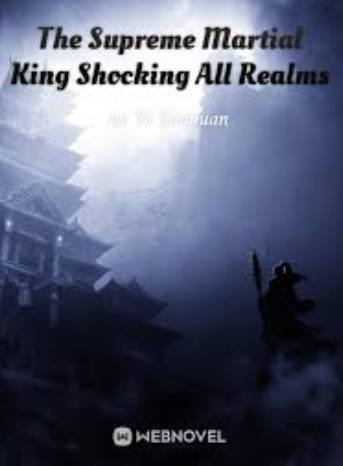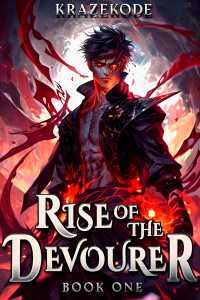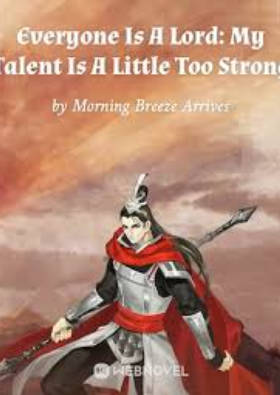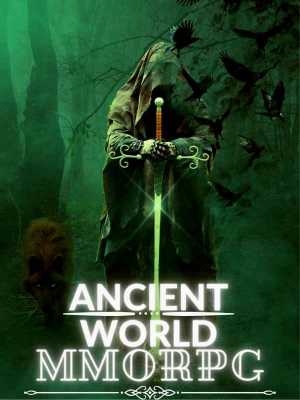Chapter 220: Copyright
During the negotiation, Ronan could clearly feel that Marvel Comics really wanted to continue selling his son. The negotiation with Robert Lee dragged on for so long. On the one hand, it was because of the competition at the beginning of the artisan film industry, on the other hand. I want to sell it at a good price.
Over the years, Marvel can only rely on selling his son to tide over the difficulties, and this time is no exception.
It’s not that there are no other sources of funds, but those who are willing to borrow or invest have too harsh requirements, especially for Avi-Allard, which may affect his authority and control in Marvel. .
But Marvel is not only one way to choose.
"Merrill Lynch is willing to relax the loan repayment time."
In the meeting room, Avi Allard’s most important deputy and his most steadfast supporter of Marvel, Isaac Palmat, said: “But we need to use the copyright of more than 100 characters as collateral. During the mortgage, they have the right to sell. Lose the power of these roles."
An executive said: "This way we pay too much."
Think about it and know that it is impossible for Merrill Lynch to claim the copyright of ordinary characters, and the copyrights of more than 100 well-known cartoon characters fall into the hands of Merrill Lynch, and it is almost impossible for Marvel to take it back.
Avi-Allard did not speak, just frowned and thought.
Another executive looked at Avi Allard and Isaac Palmat at this time, and said: "Can you consider Karl Icahn's capital injection?"
Avi-Allard's two sharp eyes, like knives, immediately fell on this person.
Isaac-Palmat said slowly: "Marvel has just stabilized internally. Are we going to let another careerist enter Marvel and continue the turmoil?"
The man wanted to distinguish, Avi-Allard raised his hand to stop him, and said, "Karl Icahn's funds don't need to be considered."
Carl Icahn competed with Avi Arad for Marvel a few years ago, and he was Avi Arad's opponent. Isn't it a joke of his own power to introduce his funds?
Isaac Palmat said at this time: "There is another way, everyone can discuss it." He directly said: "Do you remember what happened last year? Michael Jackson wanted to buy Marvel, and once personally came to the door. ."
Someone reminded: "That's Michael Jackson who wants to play Spider-Man, but I don't know that the copyright to Spider-Man is no longer in our hands."
"Michael Jackson's financial resources are not a problem." Many people are full of doubts: "But he is troubled and scandals are too many. We accept his capital injection. Will he bring these troubles to Marvel?"
With this statement, many people are shaking their heads. Marvel's internal friction in the past few years once led to the application for bankruptcy, which naturally rejected troublesome characters.
Avi Allard said: "Michael Jackson is too casual. He said he wanted to acquire Marvel for Spider-Man. Now that the copyright of Spider-Man is not in Marvel, he has no interest at all. Even if he is interested, if we Introducing his funds, he made some non-distributive requests, what should he do?"
Under the "hard work" of the North American media for decades, Michael Jackson has been demonized.
Thinking of the various rumors of Michael Jackson, everyone opposed it.
Seeing this, Isaac Palmat said: "Ronan Anderson's relativistic entertainment is the best choice."
The meeting room was quiet.
Someone asked: "Isn't the price inappropriate?"
"The price can be discussed slowly." Someone said.
Someone also reminded: "Authorization is possible, but the situation like "Fantastic Four" should never happen again."
This series of Marvel sold too badly, not only did it not have the right to directly participate in the later division, even if there are new related characters in the Fantastic Four comics, the copyright is still 20th Century Fox.
Avi Allard said: "We have had several rounds of negotiations with Ronan Anderson himself, and Relativity Entertainment does not oppose Marvel's enjoyment of the late-stage share."
The others were relieved.
Another said: "Relativity Entertainment's bid is too low. It is better to mortgage the copyright directly to Merrill Lynch."
"Relativity Entertainment only needs 35 superheroes and related characters." Someone directly retorted: "In the list of Merrill Lynch evidence, there are more than 100 superhero characters!"
Avi-Allard raised his hand to stop the quarrel and said: "Cooperating with Relativity Entertainment will not only solve the crisis in front of Marvel, but also ensure that we will have income for a long time in the future."
The opponents stopped talking. After all, if they can participate in the later stage of the film, the income is far from the current licensing fee.
Avi-Allard added: "It is already December, and the debt we have evidenced at Merrill Lynch is about to expire. If we drag it on, there is no way."
At this meeting, Avi-Allard unified the opinions within Marvel.
In the next two days, Lawyer Dinah Ampton also came to New York from Los Angeles and joined Ronan’s negotiation team to participate in the final negotiations between Relativity Entertainment and Marvel Comics to deal with some legal issues.
When the basic licensing fee was about US$30 million, the two parties reached an agreement.
This basic authorization fee is sufficient to ensure that Marvel can survive the immediate crisis. In addition to the authorization fee, Marvel also attaches great importance to the subsequent revenue sharing.
"The five percent box office share is not much!" Isaac Palmat said: "The ghost rider authorized by us also has a five percent box office share."
Robert immediately retorted: "The Ghost Rider has always been a legendary magical masterpiece. In Marvel, there is a series of stories dedicated to his main issue. It has been created and has become a popular comic book popular in North America several times since its birth. In the list of Relativity Entertainment, apart from Captain America, which other characters can compare to the Ghost Rider?"
"If it's Spider-Man, Hulk, and Fantastic Four, the 5% of the box office split is not excessive, but these..." He shook his head: "Hollywood adaptations are based on the influence of the original book. The second and third line works require a 5% total box office share, which is unprecedented in Hollywood! A 3% box office profit share is the most reasonable ratio!"
Speaking of now, Ronan rarely speaks directly anymore, just waiting for the final decision.
After several days of splitting, Ronan was not in a hurry. Without competitors, time was not good for Marvel.
Marvel basically sold out his own sons, even if he wanted to find someone to sell the remaining godsons, he couldn't do anything for a while.
This is not in a few years after all.
The current Marvel and the Marvel after "Iron Man" are completely two concepts.
In mid-December, Relativity Entertainment and Marvel Comics finally reached a licensing agreement for 35 superheroes and associated characters.
The basic licensing fee is US$30 million. The purchaser is Shahai Entertainment, a subsidiary of Relativity Entertainment, and the fee needs to be paid in one lump sum before Christmas.
The most ridiculous thing is the later stage of negotiations. Nowadays, Hollywood film adaptations, except for newcomers or companies with no strength, the latter stage is basically a necessary condition for adaptation copyright.
Marvel was pitted by Twentieth Century Fox once, and of course it will not give up the later share.
In terms of box office, the two parties have reached a 5% net box office profit sharing; offline home entertainment and TV stations and other venues copyright authorization, Marvel enjoys 20%; plane authorization 20%...
In terms of movie copyright, Marvel enjoys a 30% profit share for dolls, toys, and office workers.
The later period is divided into annual settlement.
This is also the most common proportion of comics in the industry. Marvel was scammed in the first two years, and there are various supervision and restrictive clauses in the later sharing agreement.
"Blade Warrior" adapted by Xin Xian Pictures, the response is pretty good, and it is also one of the cut films with very good commercial revenue.
However, Marvel, as the copyright owner of the original work, only received a pitiful $25,000 in the late share of "Blade Warrior".
The contract is very strict. After Marvel has been pitted by Twentieth Century Fox and New Line Film, it will naturally focus on the theory of relativity and Shahai Entertainment.
Ronan made concessions in this regard. He did not intend to pit Marvel. This was originally a win-win cooperation. The agreement signed by the two parties stipulated that all relevant authorized characters of Marvel Comics should create new comic stories, owned by Shahai Entertainment. Priority in adaptation rights, and like X-Men and Spider-Man authorization, Shahai Entertainment has the right to expand movies based on roles.
To put it bluntly, Relativity Entertainment bought not only the copyright of these characters, but also the film copyright of their comic universe.
This is the same authorization as Spider-Man, X-Men, Hulk, etc.
Given Marvel's appropriate late division, Marvel will continue to create comics about these characters and open up new stories, and Shahai Entertainment can also adapt them based on these.
Like the previous "Fantastic Four" Twentieth Century Fox did nothing. In order to preserve the copyright and even make a bad film, Marvel killed the Fantastic Four directly in the comics and then announced the suspension.
This is simply hurting each other.
In addition, Ronan also signed a supplementary clause on "Iron Man" with Marvel.
At present, the copyright of Iron Man is in the hands of Xin Xian Pictures, which, like the previous two film companies with copyright, is not interested in the adaptation of Iron Man and wants to sell the copyright back to Marvel.
The supplementary clause requires Marvel to assist Shahai Entertainment to obtain the copyright of "Iron Man", and Shahai Entertainment is responsible for all costs incurred.
With the signing of the agreement, Ronan obtained the copyright of the most important project in the future. Even if the Marvel comics appear in the future beyond his knowledge, at least it will allow Shahai Entertainment to shoot from "Iron Man" to "Avengers 4." ".
The internal chaos of Marvel Comics in recent years, the financial crisis, the overall depression of the comic industry, the recession of the economic environment, the big explosion of Marvel’s adaptation of the film has not yet appeared, etc., and many factors are combined to make this good. opportunity.
Over the years, Marvel can only rely on selling his son to tide over the difficulties, and this time is no exception.
It’s not that there are no other sources of funds, but those who are willing to borrow or invest have too harsh requirements, especially for Avi-Allard, which may affect his authority and control in Marvel. .
But Marvel is not only one way to choose.
"Merrill Lynch is willing to relax the loan repayment time."
In the meeting room, Avi Allard’s most important deputy and his most steadfast supporter of Marvel, Isaac Palmat, said: “But we need to use the copyright of more than 100 characters as collateral. During the mortgage, they have the right to sell. Lose the power of these roles."
An executive said: "This way we pay too much."
Think about it and know that it is impossible for Merrill Lynch to claim the copyright of ordinary characters, and the copyrights of more than 100 well-known cartoon characters fall into the hands of Merrill Lynch, and it is almost impossible for Marvel to take it back.
Avi-Allard did not speak, just frowned and thought.
Another executive looked at Avi Allard and Isaac Palmat at this time, and said: "Can you consider Karl Icahn's capital injection?"
Avi-Allard's two sharp eyes, like knives, immediately fell on this person.
Isaac-Palmat said slowly: "Marvel has just stabilized internally. Are we going to let another careerist enter Marvel and continue the turmoil?"
The man wanted to distinguish, Avi-Allard raised his hand to stop him, and said, "Karl Icahn's funds don't need to be considered."
Carl Icahn competed with Avi Arad for Marvel a few years ago, and he was Avi Arad's opponent. Isn't it a joke of his own power to introduce his funds?
Isaac Palmat said at this time: "There is another way, everyone can discuss it." He directly said: "Do you remember what happened last year? Michael Jackson wanted to buy Marvel, and once personally came to the door. ."
Someone reminded: "That's Michael Jackson who wants to play Spider-Man, but I don't know that the copyright to Spider-Man is no longer in our hands."
"Michael Jackson's financial resources are not a problem." Many people are full of doubts: "But he is troubled and scandals are too many. We accept his capital injection. Will he bring these troubles to Marvel?"
With this statement, many people are shaking their heads. Marvel's internal friction in the past few years once led to the application for bankruptcy, which naturally rejected troublesome characters.
Avi Allard said: "Michael Jackson is too casual. He said he wanted to acquire Marvel for Spider-Man. Now that the copyright of Spider-Man is not in Marvel, he has no interest at all. Even if he is interested, if we Introducing his funds, he made some non-distributive requests, what should he do?"
Under the "hard work" of the North American media for decades, Michael Jackson has been demonized.
Thinking of the various rumors of Michael Jackson, everyone opposed it.
Seeing this, Isaac Palmat said: "Ronan Anderson's relativistic entertainment is the best choice."
The meeting room was quiet.
Someone asked: "Isn't the price inappropriate?"
"The price can be discussed slowly." Someone said.
Someone also reminded: "Authorization is possible, but the situation like "Fantastic Four" should never happen again."
This series of Marvel sold too badly, not only did it not have the right to directly participate in the later division, even if there are new related characters in the Fantastic Four comics, the copyright is still 20th Century Fox.
Avi Allard said: "We have had several rounds of negotiations with Ronan Anderson himself, and Relativity Entertainment does not oppose Marvel's enjoyment of the late-stage share."
The others were relieved.
Another said: "Relativity Entertainment's bid is too low. It is better to mortgage the copyright directly to Merrill Lynch."
"Relativity Entertainment only needs 35 superheroes and related characters." Someone directly retorted: "In the list of Merrill Lynch evidence, there are more than 100 superhero characters!"
Avi-Allard raised his hand to stop the quarrel and said: "Cooperating with Relativity Entertainment will not only solve the crisis in front of Marvel, but also ensure that we will have income for a long time in the future."
The opponents stopped talking. After all, if they can participate in the later stage of the film, the income is far from the current licensing fee.
Avi-Allard added: "It is already December, and the debt we have evidenced at Merrill Lynch is about to expire. If we drag it on, there is no way."
At this meeting, Avi-Allard unified the opinions within Marvel.
In the next two days, Lawyer Dinah Ampton also came to New York from Los Angeles and joined Ronan’s negotiation team to participate in the final negotiations between Relativity Entertainment and Marvel Comics to deal with some legal issues.
When the basic licensing fee was about US$30 million, the two parties reached an agreement.
This basic authorization fee is sufficient to ensure that Marvel can survive the immediate crisis. In addition to the authorization fee, Marvel also attaches great importance to the subsequent revenue sharing.
"The five percent box office share is not much!" Isaac Palmat said: "The ghost rider authorized by us also has a five percent box office share."
Robert immediately retorted: "The Ghost Rider has always been a legendary magical masterpiece. In Marvel, there is a series of stories dedicated to his main issue. It has been created and has become a popular comic book popular in North America several times since its birth. In the list of Relativity Entertainment, apart from Captain America, which other characters can compare to the Ghost Rider?"
"If it's Spider-Man, Hulk, and Fantastic Four, the 5% of the box office split is not excessive, but these..." He shook his head: "Hollywood adaptations are based on the influence of the original book. The second and third line works require a 5% total box office share, which is unprecedented in Hollywood! A 3% box office profit share is the most reasonable ratio!"
Speaking of now, Ronan rarely speaks directly anymore, just waiting for the final decision.
After several days of splitting, Ronan was not in a hurry. Without competitors, time was not good for Marvel.
Marvel basically sold out his own sons, even if he wanted to find someone to sell the remaining godsons, he couldn't do anything for a while.
This is not in a few years after all.
The current Marvel and the Marvel after "Iron Man" are completely two concepts.
In mid-December, Relativity Entertainment and Marvel Comics finally reached a licensing agreement for 35 superheroes and associated characters.
The basic licensing fee is US$30 million. The purchaser is Shahai Entertainment, a subsidiary of Relativity Entertainment, and the fee needs to be paid in one lump sum before Christmas.
The most ridiculous thing is the later stage of negotiations. Nowadays, Hollywood film adaptations, except for newcomers or companies with no strength, the latter stage is basically a necessary condition for adaptation copyright.
Marvel was pitted by Twentieth Century Fox once, and of course it will not give up the later share.
In terms of box office, the two parties have reached a 5% net box office profit sharing; offline home entertainment and TV stations and other venues copyright authorization, Marvel enjoys 20%; plane authorization 20%...
In terms of movie copyright, Marvel enjoys a 30% profit share for dolls, toys, and office workers.
The later period is divided into annual settlement.
This is also the most common proportion of comics in the industry. Marvel was scammed in the first two years, and there are various supervision and restrictive clauses in the later sharing agreement.
"Blade Warrior" adapted by Xin Xian Pictures, the response is pretty good, and it is also one of the cut films with very good commercial revenue.
However, Marvel, as the copyright owner of the original work, only received a pitiful $25,000 in the late share of "Blade Warrior".
The contract is very strict. After Marvel has been pitted by Twentieth Century Fox and New Line Film, it will naturally focus on the theory of relativity and Shahai Entertainment.
Ronan made concessions in this regard. He did not intend to pit Marvel. This was originally a win-win cooperation. The agreement signed by the two parties stipulated that all relevant authorized characters of Marvel Comics should create new comic stories, owned by Shahai Entertainment. Priority in adaptation rights, and like X-Men and Spider-Man authorization, Shahai Entertainment has the right to expand movies based on roles.
To put it bluntly, Relativity Entertainment bought not only the copyright of these characters, but also the film copyright of their comic universe.
This is the same authorization as Spider-Man, X-Men, Hulk, etc.
Given Marvel's appropriate late division, Marvel will continue to create comics about these characters and open up new stories, and Shahai Entertainment can also adapt them based on these.
Like the previous "Fantastic Four" Twentieth Century Fox did nothing. In order to preserve the copyright and even make a bad film, Marvel killed the Fantastic Four directly in the comics and then announced the suspension.
This is simply hurting each other.
In addition, Ronan also signed a supplementary clause on "Iron Man" with Marvel.
At present, the copyright of Iron Man is in the hands of Xin Xian Pictures, which, like the previous two film companies with copyright, is not interested in the adaptation of Iron Man and wants to sell the copyright back to Marvel.
The supplementary clause requires Marvel to assist Shahai Entertainment to obtain the copyright of "Iron Man", and Shahai Entertainment is responsible for all costs incurred.
With the signing of the agreement, Ronan obtained the copyright of the most important project in the future. Even if the Marvel comics appear in the future beyond his knowledge, at least it will allow Shahai Entertainment to shoot from "Iron Man" to "Avengers 4." ".
The internal chaos of Marvel Comics in recent years, the financial crisis, the overall depression of the comic industry, the recession of the economic environment, the big explosion of Marvel’s adaptation of the film has not yet appeared, etc., and many factors are combined to make this good. opportunity.







